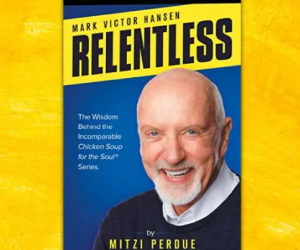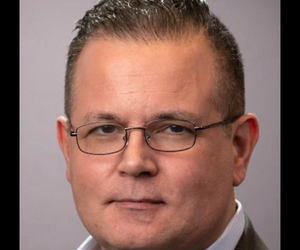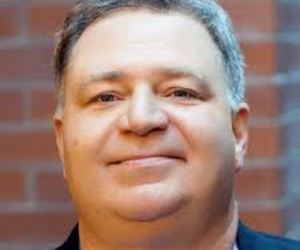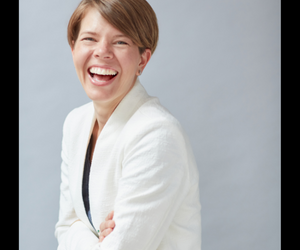Redefine Failure
If we met in person, I can’t know how I come across, but I’d make a guess that you’d see me as someone who’s self-confident, enjoys being with you, and who’s maybe had some successes in life. But I think you’d be completely shocked if you had known me in my 30s.
What changed? It has to do with redefining failure. To explain this, I need to tell the story of Peter Smith, which by the way is not his real name.
The World’s Greatest Underachiever
Peter Smith was a rice farmer, genius, and for almost a decade, my tenant on my rice farms in Sacramento, California. He was also my closest friend.
But in addition to all that, there was something really unusual about Peter , he had an IQ over 200. He was one of the 40 original Whiz Kids who were used to calibrate the Stanford Binet IQ tests.
I adored Peter, but he became a role model for what I didn’t want to make of my own life. He had a fabulous IQ, but he used to describe himself as the World’s Greatest Underachiever.
Peter told me that his goal in life was to write a book that would be his gift to the world, in gratitude for the good fortune of having the IQ that he was granted. He wanted to put together all the world’s wisdom from science, history and literature. That he was going to create a book that would help people live their lives to the fullest.
He had this idea of writing this book while he was in his 20s, but it was entirely clear to him that at that age, that he was too green and wet behind the ears to take on such a project. In his 30s, he came to the same conclusion. Same for his 40s, 50s, and mid-60s.
Terminal Heart Disease
However, in 1979 when he was 68 years old, he came to my office one day, and after sitting down in the leather chair in front of my desk, he told me, “I’ve got terminal heart disease.” His six foot four frame was hunched over, seemingly taking up less space in the chair. His face unnaturally gray.
“I’ve been noticing,” he continued, “that my chest hurts, and for the last few weeks I haven’t even been able to walk across the room without crippling pain!”
He went on to explain that he had just been to see his doctor, who had sent him to a cardiologist, and the cardiologist had put him through a heart catheterization and found that all four of his coronary arteries were 90% occluded.
“They want me to have quadruple bypass surgery at the Mayo Clinic,” he said, “and they’re not sure they can keep me alive for the two months it will take for them to fit me in.”
I’m gasping for breath as I hear this. My world is spinning. I can’t believe it.
 
The Odds of Survival
Peter continued talking. “I’ve researched my odds of surviving this, and nobody with my degree of damage survives for even two years after the surgery. And they’re in pain the whole time. I’m not going to agree to the surgery. I’m not going to be a cardiac cripple.”
Peter’s face was ashen, his voice a shadow of the formerly robust and powerful sound I was used to. “I’m dying,” he said, and then slowly pronounced the saddest words I’ve ever heard anyone say, “I’ll never get to write my book.”
At this point I think both of us were feeling almost unbearable grief. We were both grieving not only about his death sentence, but also for the fact that he would never be able to achieve his life’s purpose.
Another Chance
But then I did something that to this day I wonder how I had the presumption to do. I had heard of the Pritikin Clinic in Southern California which had a track record of helping heart patients. I picked up the phone on my desk, got the number for the clinic from information, and moments later, had him signed up for a month at the clinic. He was too weak to protest, and in a matter of hours, I had put him on the plane for Los Angeles.
Peter spent a month there, having a diet of unrefined foods, lots of fruits and vegetables, hours of daily exercise, plus stress reduction exercises. After a month of this, he lost probably 10 pounds (eventually 20), and his chest pains vanished. Although before, he couldn’t walk across the room without crippling pain, now he was walking five miles and ready to tackle double that.
His heart, he learned from his cardiologist, had re-vascularized and he was, in effect, cured. When I saw him again, he was a different man. His color was back, he was standing tall and looking vigorous. and I told him, “Peter, this is wonderful, I’m so happy for you, write your book.”
“Yes, yes!” he answered, beaming, “Now I’m going to do it!” Hearing this, I was mentally doing cartwheels of pure joy.
But then he added, “I only need a little more research before I start!”
Ready, Fire, Aim!
Thud! At that moment I knew that he would never write his book.
I would spend the rest of my life working to make myself into the opposite of this man whom I otherwise so much admired. Right then and there I vowed that I would avoid the trap of always planning and never doing.
I adopted the motto, “Ready, Fire, Aim!, as in, I would just do it and maybe plan later. I didn’t literally “plan later,” but I made very sure not to spend so much time planning that I never acted.
Incidentally, Peter lived another 30 years, and never did write his book.
I knew him well enough to be certain why he never would write the book. What kept him from writing his book was fear of failure. He was afraid that if wrote the book, it would not be as great as he hoped. But alas, he did the one thing that guaranteed failure and that is, he didn’t try.
In my case, I determined that I would redefine failure. Failure isn’t the not achieving of your immediate goal. For me the only real failure would be not trying and not giving your all.
It’s against the rules to be Discouraged By Failure.
My attitude changed. I was thinking, “When you don’t reach your immediate goal, when you fall flat on your face, it’s still, a victory, as long as you try!”
My attitude ever since has been, “Just the act of trying makes you a winner. The reason is you’ll have learned new things, met new people, maybe acquired some new skills, and you’ll be better positioned for the next time you try.”
In my book, it’s against the rules to be discouraged by failure and it’s Totally Against the Rules not to try because you’re afraid of failure.
This played out in a remarkable way in my own life. Up until almost my 40s, I really hadn’t done much with my life. Like Peter, I guess I was afraid to put myself out there and try for things.
My life utterly changed the year that I figured out that Peter was never going to write his great book. It was also the year I vowed to redefine failure.
I was at this point so shy that it was hard to make telephone calls. The thought of coming into a room full of strangers and feel comfortable was – well, it was unthinkable. The idea of going after what I wanted just wasn’t in my repertoire. And by the way, a lot of this lack of self-confidence came from having a bad first marriage.
Daring to try
Anyway, when I decided to stop being held back by fear of failure, I began trying for some things I hadn’t dared try for before. Deciding to no longer fear rejection slips, I began submitting articles to magazines and newspapers. I then auditioned for a television show followed by a radio show.
I began a career that has meant becoming a syndicated columnist, and both a radio and TV hostess. All within one year of losing my fear of failure.
Losing my fear of failure and giving each attempt everything I’ve got has meant gaining undreamed of successes.
My challenge for you is: are there any areas of your life where fear of failure is holding you back? When you try for something, are you giving it everything you’ve got, or are you holding back?
Try redefining failure: it’s not failure when you don’t succeed; you’re a winner for trying! And not matter what it will make you a bigger person, laying the groundwork for unimagined success!
Search Articles
Latest Articles
Ukraine’s Secret Hospital Train
https://spectator.org/ukraines-secret-hospital-train/ Publication – spectator.org
Ukraine’s Irradiated Scrapyard Is a Global Health Hazard
https://www.kyivpost.com/post/30760 Publication – kyivpost.com
As Russia Tortures Evangelical Christians, US Baptists Urge House Speaker Johnson to Take Action
https://cmsedit.cbn.com/cbnnews/world/2024/april/as-russia-tortures-evangelical-christians-us-baptists-urge-house-speaker-johnson-to-take-action Publication – cmsedit.cbn.com
Prosecute or Move On?
https://www.psychologytoday.com/us/blog/to-end-human-trafficking/202404/prosecute-or-move-on Publication – psychologytoday.com
Subscribe to Updates
About Author

Mitzi Perdue is the widow of the poultry magnate, Frank Perdue. She’s the author of How To Make Your Family Business Last and 52 Tips to Combat Human Trafficking. Contact her at www.MitziPerdue.com
All Articles
Learn How to Turn Adversity Into Opportunity
Learn How to Turn Adversity Into Opportunity“Use adversity as a bridge to your destiny.” Those are nice words to live by, especially if it works and your destiny turns out to be fulfilling and rewarding. People probably view Mark Victor Hansen’s destiny as a...
When it Comes to Vendors and Services, Size Matters
When it Comes to Vendors and Services, Size MattersWhen you’re evaluating outside vendors or services for your family office clients, is the size of the company you’re looking at one of your important considerations? It was a crucial screen for my late husband, Frank...
Shifting to a High-Functioning Family
Shifting to a High-Functioning FamilyYou’ve heard of a Tale of Two Cities by Dickens, right? Today’s topic is a Tale of Two Families and the person who can tell the story is Steve Legler, a family business speaker, author, and advisor. The two families he has in mind...
Are You Paying Attention to Both Parts of Succession Planning?
Are You Paying Attention to Both Parts of Succession Planning?There are two major components of family business succession, but all too often family business owners focus on only one. The result is missed opportunities and the potential for family dysfunction. The two...
Your Family’s Greatest Heirloom
Your Family’s Greatest Heirloom“There’s nothing greater you can give your family than this,” says Jamie Yuenger, founder of StoryKeep. “Provide those who come after you with the tools for personal, emotional, and spiritual success.” The way to do this, she believes,...
Want your family business to last ? Five tips for getting there.
Want your family business to last ? Five tips for getting there. View ArticleSearch ArticlesLatest ArticlesSubscribe to UpdatesAbout AuthorMitzi Perdue is the widow of the poultry magnate, Frank Perdue. She’s the author of How To Make Your Family Business Last and 52...






